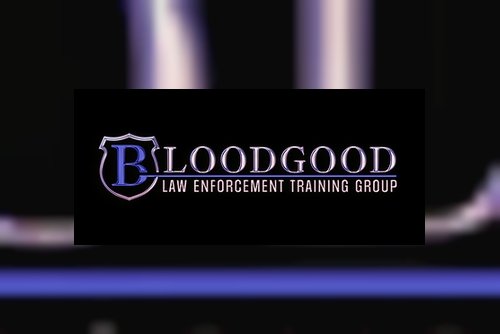In the rapidly evolving landscape of B2B marketing, AI Predictive Lead Scoring is no longer just an option. It has become a necessity for businesses looking to maximize efficiency and drive higher conversion rates. As organizations move deeper into 2025, the integration of artificial intelligence in lead scoring and segmentation is transforming the way companies identify, prioritize, and nurture potential customers. By leveraging AI, businesses can now move beyond traditional lead qualification methods and embrace a more precise, dynamic, and intelligent approach.
How AI Transforms Lead ScoringAI Predictive Lead Scoring harnesses the power of machine learning algorithms to analyze vast datasets, uncover patterns, and predict the likelihood of a lead converting into a customer. Unlike conventional scoring systems that assign static points based on predefined criteria, AI models continuously learn from historical interactions, behavioral signals, and engagement metrics. This adaptive scoring ensures that sales and marketing teams focus on leads with the highest potential, reducing wasted effort and increasing ROI.
Intelligent Segmentation for Better TargetingPredictive AI enables marketers to segment their audience more intelligently. By analyzing behavioral data, purchase history, demographic information, and engagement trends, AI-driven segmentation identifies micro-audiences that are more likely to respond to specific campaigns. This allows businesses to personalize marketing efforts and deliver the right message to the right lead at the right time.
Data Integration Across TouchpointsOne of the key advantages of AI-powered lead scoring in 2025 is its ability to integrate data from multiple touchpoints. Today’s buyers engage with brands across emails, social media, website interactions, webinars, and direct sales outreach. Traditional scoring systems often struggle to consolidate this fragmented data effectively. AI synthesizes information from these diverse sources, providing a holistic view of each lead’s readiness to convert and enabling highly personalized campaigns.
Machine Learning Techniques in Lead ScoringThe predictive models driving AI lead scoring rely heavily on both supervised and unsupervised machine learning techniques. Supervised learning involves training algorithms on historical lead data to predict outcomes, such as conversion likelihood or purchase intent. Unsupervised learning helps identify hidden patterns in the data, such as emerging customer segments or unusual behavior trends. Combining these approaches allows AI systems to continuously refine lead scores and segmentation models, ensuring predictions remain accurate even as market dynamics shift.
Identifying Hidden OpportunitiesAI Predictive Lead Scoring can uncover previously overlooked leads. Traditional models often prioritize leads based solely on demographic information or engagement frequency, potentially missing high-value prospects with unconventional behaviors. AI algorithms analyze a wider array of variables, including browsing patterns, content interactions, social signals, and sentiment analysis from communications, enabling sales teams to identify hidden opportunities and prioritize leads that would have otherwise gone unnoticed.
Personalized Marketing Through AI InsightsAI-driven segmentation enhances marketing efficiency by enabling dynamic content personalization. Once leads are scored and segmented, marketing automation platforms can deliver tailored messaging at the optimal time, increasing engagement and conversion rates. Granular personalization, powered by AI insights, significantly improves campaign effectiveness and strengthens relationships with prospects.
Optimizing Resources and Team EfficiencyPredictive lead scoring helps optimize resource allocation within sales and marketing teams. By accurately predicting lead quality, AI allows organizations to focus time and effort where it matters most. High-potential leads receive immediate attention from sales representatives, while lower-scoring leads are nurtured with automated campaigns until they demonstrate readiness to engage.
Real-Time Analytics for Agile Decision MakingIntegration of AI in predictive lead scoring is enhanced by real-time analytics and continuous feedback loops. As leads interact with marketing assets and sales teams, AI models update their predictions in real time, ensuring that scoring remains current and actionable. Real-time adjustments empower marketers to experiment with messaging strategies, assess performance, and optimize campaigns based on live insights.
Ensuring Privacy and CompliancePrivacy and data security remain paramount considerations. In 2025, compliance with global data protection regulations, such as GDPR and CCPA, is non-negotiable. AI systems must respect user privacy while still providing actionable insights. Advanced anonymization techniques, secure data storage, and transparent consent mechanisms ensure predictive lead scoring drives growth while maintaining customer trust.
Strategic Forecasting with AIAI Predictive Lead Scoring enables predictive forecasting at a strategic level. By aggregating lead scores across the sales funnel, organizations can anticipate revenue trends, identify potential bottlenecks, and make informed decisions about campaign investments. This empowers businesses to operate more strategically and proactively, focusing on leads that offer the highest long-term returns.
Enhancing Team CollaborationAI fosters cross-team collaboration between marketing, sales, and customer success departments. Predictive scoring systems provide a shared understanding of lead potential, ensuring all teams align in outreach and engagement strategies. Sales teams gain confidence that leads have been validated through data-driven insights, while marketing teams refine content strategies based on real-world conversion patterns.
Future Trends in AI Lead ScoringLooking ahead, AI-driven predictive lead scoring will continue to evolve with advancements in natural language processing, sentiment analysis, and real-time behavioral tracking. Marketers can expect sophisticated scoring models that factor in intent signals from multiple channels, including social media engagement, email interactions, and content consumption patterns. Predicting customer lifetime value alongside conversion likelihood will further enhance strategic decision-making.
Read Full Article : https://acceligize.com/featured-blogs/how-ai-is-shaping-predictive-lead-scoring-and-segmentation-in-2025/
About Us : Acceligize is a global B2B demand generation and technology marketing company helping brands connect with qualified audiences through data-driven strategies. Founded in 2016, it delivers end-to-end lead generation, content syndication, and account-based marketing solutions powered by technology, creativity, and compliance.











 Luxurious 2-Bhk Furnished Apartment Rent in Baridhara
Luxurious 2-Bhk Furnished Apartment Rent in Baridhara
